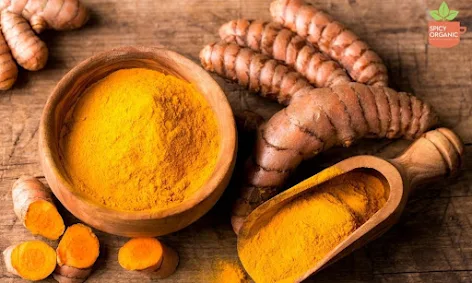When to Avoid Turmeric: The Top 6 Side Effects Everyone Should Be Aware Of
The Top 6 Side Effects Everyone Should Be Aware Of
1. Blood Pressure and Diabetes Medication
Using a high amount of turmeric in any form may lead to low blood pressure or blood sugar. Hence, people taking medication for diabetes or those meant to regulate blood pressure should apply caution when using turmeric as a supplement. This may heighten its effects, leading to symptoms like a racing heartbeat, blurred vision, and confusion. Therefore, it is not advisable to take turmeric along with medications for diabetes.
2. When You Have A Blood-Clotting Disorder
The spice is known for its anti-inflammatory properties. However, it can also have an adverse effect if combined with anti-clotting medications, which may result in bruising and bleeding.
You can expect such effects if you take a large dose of the spice with any of the following blood-thinning medications: aspirin, antiplatelet drugs, and warfarin.
3. If You Are Pregnant or Breastfeeding
Experts advise pregnant women to avoid taking high doses of turmeric to prevent any side effects. This may include stimulating the uterus, which may put the pregnancy at risk.
Experts say that there is no risk of side effects if the spice is used in the recommended dosage. The problem arises if it is taken in high doses because it may increase the acid levels in the stomach, which can damage the esophagus’ lining if it starts rising.
If this occurs, it will also cause hyperacidity, heartburn, and intestinal or stomach ulcers, or even worsen the case. Other related symptoms may include bloating, stomach cramps, nausea, and chest pain.
5. If You Have Gallbladder Problems
Turmeric can do two things for your gallbladder. The spice can aid in regulating the amount of bile the gallbladder produces, or it can obstruct the bile duct and cause the formation of gallstones. However, the latter effect is only going to happen if your gallbladder is not in a good condition.
6. If You Suffer From Liver Problems
Some studies showed that the intake of turmeric has an effect on how the organ processes some drugs and may lead to liver problems. In relation to that, experts now stress for people with a liver condition to practice caution when taking turmeric supplements.
Making use of turmeric’s medicinal properties is safe as long as it is consumed in the recommended dosage. The cases mentioned above are just some of the examples you may become at risk of if you do not follow the basic guidelines. ( Six (6) Common Lifestyles That Damage The Liver)
Keep in mind that the standard and safe dosage for turmeric is 400-600mg of the powder, taken 1 to 3 times daily.
If you have a pre-existing condition, the only way to know the safe dosage and find out more about when to avoid turmeric is by consulting your doctor first.
http://www.livescience.com/41760-turmeric-supplement-facts.html
http://www.memory-improvement-tips.com/side-effects-of-turmeric.html
http://herbs.lovetoknow.com/Side_Effects_of_Turmeric
http://www.turmericforhealth.com/general-info/side-effects-of-turmeric
http://www.seattletimes.com/life/wellness/people-on-blood-thinners-must-avoid-turmeric/











